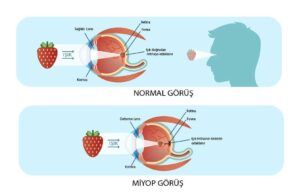
Secrets of Healthy Weight Loss?
Mind Over Matter: Harnessing the Power of Your Mind to Achieve Your Weight Loss Goal , Losing weight can be a challenging journey for many people. It requires dedication, commitment, and a significant lifestyle change. While there are many ways to lose weight, such as following a healthy diet and exercising regularly, there is another important factor that can help you achieve your weight loss goals: the power of your mind. In this article, we will explore how harnessing the power of your mind can help you lose weight and maintain a healthy lifestyle.
The Mind-Body Connection is a concept that has been around for centuries. It refers to the idea that our thoughts, emotions, and beliefs can have a significant impact on our physical health. For example, if you are stressed, your body may release hormones that can increase your appetite, leading to overeating and weight gain. On the other hand, if you are in a positive state of mind, you may be more motivated to exercise and make healthy food choices.
Visualization is a powerful technique that can help you achieve your weight loss goals. It involves creating mental images of yourself at your ideal weight and imagining how you will feel once you have reached your goal. Visualization can help you stay motivated and focused on your goals, even when you face challenges or setbacks.
To practice visualization, find a quiet place where you can relax and focus your mind. Close your eyes and imagine yourself at your ideal weight. Visualize yourself doing the activities you love and feeling happy, confident, and healthy. You can also visualize yourself making healthy food choices and exercising regularly. Repeat this exercise every day, and you will start to see the benefits in your everyday life.
Affirmations are positive statements that you repeat to yourself to help you overcome negative thoughts and beliefs. They can be a powerful tool for weight loss because they can help you stay motivated and focused on your goals.
To create affirmations, start by identifying the negative thoughts and beliefs that may be holding you back from reaching your weight loss goals. For example, if you often tell yourself that you are not good enough or that you will never be able to lose weight, create an affirmation that counteracts that belief. Some examples of affirmations for weight loss include:
I am capable of achieving my weight loss goals.
I am worthy of a healthy, happy body.
I choose to make healthy choices that nourish my body.
I love and respect my body, and I am committed to taking care of it.
Repeat your affirmations every day, either out loud or in your head. You can also write them down and post them in a place where you will see them often, such as on your bathroom mirror or on your desk at work.
Meditation is a practice that involves focusing your mind and body on the present moment. It can help you reduce stress and anxiety, which can contribute to overeating and weight gain. Meditation can also help you increase your self-awareness and mindfulness, which can help you make healthier choices and stay motivated to reach your weight loss goals.
To meditate, find a quiet place where you can sit comfortably with your eyes closed. Focus your attention on your breath, and let go of any thoughts or distractions that come into your mind. If you find yourself getting distracted, gently bring your attention back to your breath. Start with just a few minutes of meditation each day, and gradually increase the length of your sessions as you become more comfortable.
Goal Setting, Setting goals is an important part of any weight loss journey. However, it is important to set realistic and achievable goals that are specific, measurable, and time-bound. For example, instead of setting a goal to “lose weight,” set a goal to “lose 10 pounds in the next three months by eating healthy and exercising regularly.”








